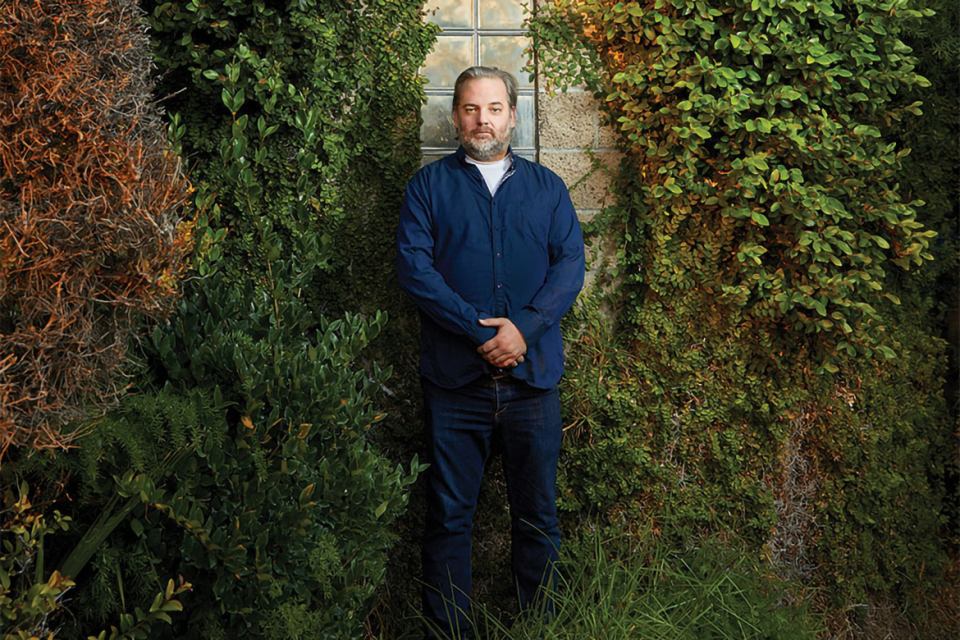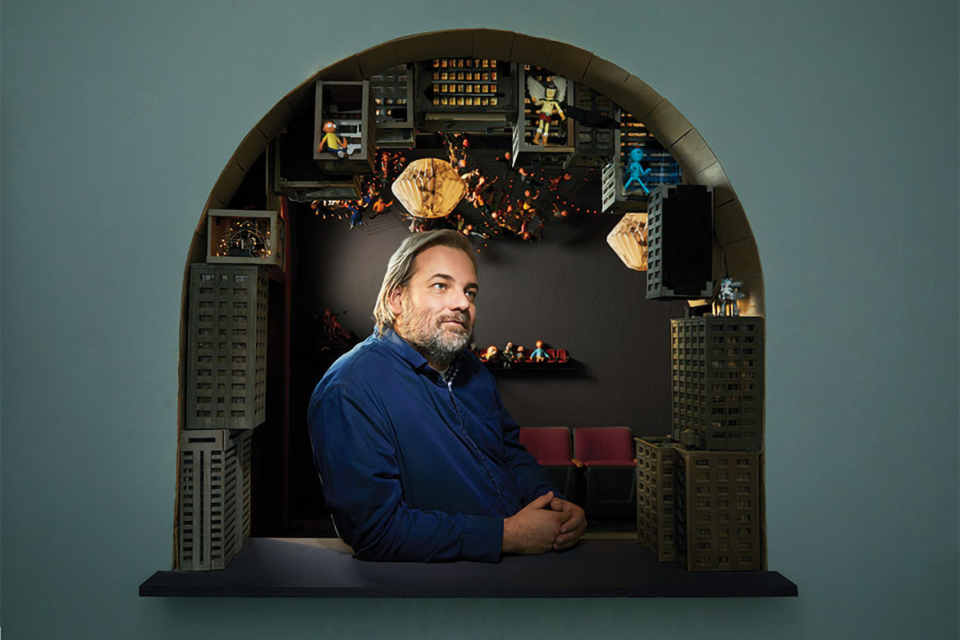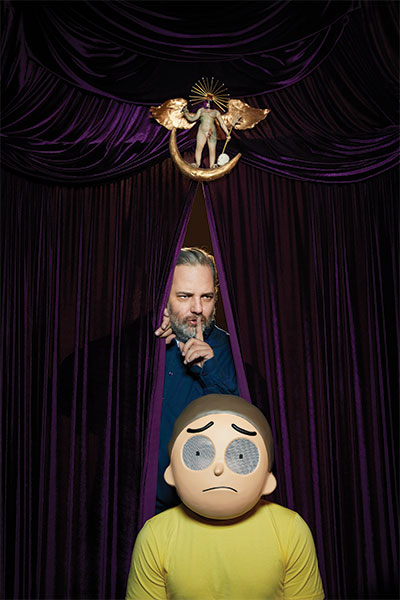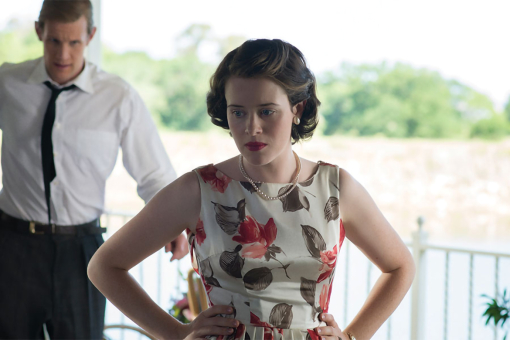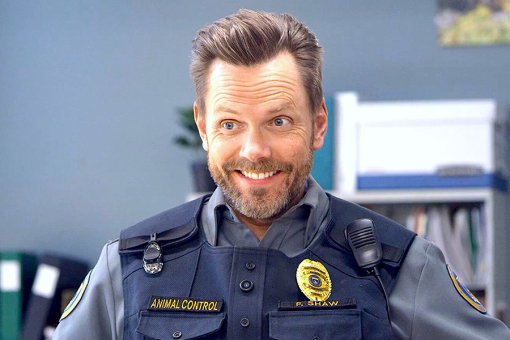Dan Harmon is an original.
There is just no other way to describe the man behind two of the century's unique sitcoms thus far. Community never quite got the audience it deserved, but it still lasted for six seasons (five on NBC and one on Yahoo!). Cartoon Network's Rick and Morty was the most-watched comedy on television among young adults in 2017.
Both shows are known for a certain level of absurdity that doubles as thoughtfulness.
In Community, Harmon created a makeshift family among a group of misfits who had little in common. Of course, that had already been done plenty of times. He, however, used the sitcom to poke fun at many TV tropes and conventions, often through oddballs who were not the usual lovable losers but rather, fundamentally awful and unappealing people.
A 2011 analysis in The Atlantic called the show "a spoof of pop culture in general, and an occasionally profound critique of how living in mass media society can mess up human relationships in the real world." The article went on to note, "It's also funny, too. Some of that 'profound critique' comes disguised in the form of boob jokes."
These days, that jaundiced view can be found in the animated Rick and Morty, which after three seasons has developed a fanatical following. It pairs an eccentric scientist, Rick — the smartest man in the world, but also an absentee father, an alcoholic and an admitted raving sociopath — with his callow grandson, Morty, a scared 14-year-old who gets strong-armed into dangerous interdimensional adventures.
The show consistently sets records for the network's late-night Adult Swim block — not bad for a series that evolved out of something as simple as a love of silly voices.
"I don't put a lot of emphasis on the value of the idea," Harmon explains during an interview in his Burbank offices. "Because I primarily work in TV, and in TV the idea is not for sale. You can have a great idea for a show, but it doesn't mean anything. I don't believe that it starts with, 'Gosh, I have to come up with this amazing new thought, scenario, twist.' Those things are a dime a dozen.
"They come from your life or other people's lives, and you come across them everywhere. In the case of Rick and Morty, it started with these two voices that Justin really likes doing. That's the hard part to generate, people's bliss. People's joy."
"Justin" is Justin Roiland, Harmon's creative partner on the show (they are both creator–executive producer–writers; Roiland also voices both title characters).
The two met years ago at the Channel 101 digital film festival, when Roiland regularly submitted animated shorts. Harmon and his former writing partner, Rob Schrab, started the festival in 2003, and it quickly became a haven for experimental and guerrilla filmmakers. Roiland perfectly fit that mold, and he and Harmon soon bonded. Roiland had a habit of mimicking Doc and Marty from the Back to the Future movies, and Harmon knew they could do something with that.
"I knew that, since Justin loved doing those voices, and it's hard to find something that keeps him entertained for years on end, for him to say 'I can't stop doing these voices' was very important," Harmon says. "We had to build a show around these voices."
The show they built features episodes so dense with metaphors and lessons to be learned amid the laughs that it's hard to keep up with them all, to say nothing of the ideas that never tie back into the main plot. For instance, in the season-two episode "Mortynight Run," at an interdimensional arcade for time-space travelers like Rick, a video game called Roy: A Life Well Lived allows players to experience an avatar's life over the span of decades.
Such absurdity is a hallmark of Harmon's work, but without depth it might be easily dismissed. But Rick and Morty has depth, and fans respond with Reddit conversations, personal blogs and running commentaries about each episode's meanings and Easter eggs. The lessons can be as simple as "stop underestimating others" or more complicated, like "iteration will probably be required."
This last one came after Rick literally transformed himself into a pickle to avoid a family therapy session, which led to a hilarious and involved adventure to regain his natural human form. (Yes, it is as insane as it sounds.)
Some very smart people are avowed fans of the show — and that surprises Harmon. "I am kind of shocked by the sheer weight and volume of the show's success, but I am particularly surprised that it is a favorite of actual scientists," he says with self-deprecating laughter. "Because it seems like they have better ways to express things we're fumbling with. It seems so backwards that people like Elon Musk and Neil deGrasse Tyson and a bunch of other high-IQ bigwigs are fans of the show."
To reconcile this, Harmon compares Rick and Morty to Gary Larson's legendary long-running newspaper cartoon,The Far Side. In the 1980s and '90s, science teachers across the land clipped examples of Larson's work to their desks, recognizing the same simple genius that so many attribute to Harmon.
"No matter how absurd Gary Larson got," he says, "there was something unmeasurable, that he was clearly an armchair biologist and thought about science, even if it's just a cartoon of a cow on a tractor with an absurdist caption about how the cow's day had gone. You could recognize that he was a nerd and thought critically about things, and that's how he found his humor.
"Maybe that's what Rick and Morty does for the scientific mind. It starts with a layman's perspective of certain aspects of quantum physics and then goes off into absurd, childish humor. That's the common thread. Once I heard scientists liked the show, I realized, 'Oh, you don't have to have a 300 IQ to entertain people with 200 IQs.' You can do it and have people identify with it and recognize that you're doing something unique and for them."
In that statement, though, does lie some trouble. We live in an age when self-appointed experts abound, often commenting on various internet threads from the safety of anonymity. Misogyny has frequently reared its ugly head in these dark places, especially in the geek world. The domains of superhero, sci-fi and fantasy films and television, as well as video games and animation, have all seen some nasty behavior by fanboys. Rick and Morty's rabid following can sometimes wield a double-edged sword.
This was especially true in September 2017, when online trolls went after Jane Becker and Jessica Gao, the writers of, respectively, the second and third episodes of season three. Harmon has had a gender-balanced writing staff since Community, so he finds the idea of token women in the writers' room ridiculous. He'd been on a Twitter hiatus when the storm hit, so his response was slightly delayed, but once he knew what his writers were going through, he didn't hold back in calling out the trolls.
"The thing is, I'm a narcissist and an elitist, and if I'm running a show, the room is the room; we're an army running over hot coals together. We work really hard and test each other's patience and collaborate on these fantasies, and, in rotation, the person whose name ends up on the script, that person had to go to hell and back on that particular episode, they're more of a producer on this episode," he says.
"It's so arrogant and pigheaded to assume you know anything about how television is produced, and then to get on your soapbox and spout an anti-humanitarian agenda. At least know what you're talking about. If you're going to be a misogynist, then become an expert on women and writing, but since you're neither, you're taking up all this space and wasting our time."
After the dust settled, Harmon and Gao started a podcast called Whiting Wongs. It covers writing, privilege and Hollywood in a hilariously self-aware way.
"We talk on the podcast about trolls, and he has a philosophy on how to handle them," Gao says. That philosophy is, in case you hadn't guessed: use blunt force. "The great thing about Dan is that he genuinely does care about the people that work for him and around him, so if he doesn't respond to something, it's because he isn't aware of it," she says. "Any time he is made aware of a problem, he immediately acts, and tries to fix it. His response is always to do something about it and not ignore it."
Sometimes, that means owning up to his own bad behavior. On New Year's Eve, Harmon tweeted, "This was truly the Year of the Asshole. Myself included. We don't have to make 2018 the Year of the Mensch but I hope it can be the Year of the Not as Much of an Asshole. #RealisticGoals."
Former Community writer Megan Ganz called him out on this two days later, and they engaged in a very public — but very civilized — back and forth in which Harmon apologized profusely for unspecified acts he'd committed against her while she worked for him. At first, Ganz acknowledged him via Twitter but did not explicitly forgive him.
Then, on the January 10 episode of his podcast Harmontown, he offered what Ganz later described in a tweet as "a master class in How to Apologize. He's not rationalizing or justifying or making excuses. He doesn't just vaguely acknowledge some general wrongdoing in the past. He gives a full account." She publicly forgave him.
Harmon was chastened, but it hasn't affected the enthusiasm he has for his work, which is so clearly evident in what appears on television. In Rick and Morty, he's found the perfect show for his sensibilities.
"In every way I could define an ideal job, this fits it," he says. "It's a show that can literally go anywhere and do anything. It has a boundless margin for nihilism; in other words, you can't go too far. Not only narratively, but also tonally, there is nothing off the table for the show."
With Adult Swim recently ordering 70 more episodes, Harmon believes Rick and Morty could go on indefinitely. (At press time it was unclear how the episodes will break across future seasons; the first three seasons consisted of 31 episodes total.) But he does plan to shake things up with a more anarchic writing style.
Rather than focus on A and B stories and certain jokes and bits of dialogue that might fit together, Harmon and his team will instead develop, nurture and cultivate ideas, moments, conversations, jokes, stories, premises and swaths of dialogue, with no emphasis on any one aspect over another.
Anything that makes them laugh will be worthy of attention, and only as a last resort — and at the last minute — will these items be collected into episodes. It's a sort of deconstruction of the process, focusing on moments first and structure second, rather than the other way around (that is, the usual way). Most experienced show creators would find that daunting, but not Harmon.
"The last thing I want is to be the guy who makes Rick and Morty sterile," he says with a shrug. "We need to keep it fresh and continue to innovate. It helps to collaborate with someone like Justin. He has his disorders and I have mine, but it's hard to find a creative partnership where each thinks the other is a genius, and each is terrified of alienating the other or letting the other down. It's really, really hard to find partnerships like that. It's a once-in-a-lifetime thing."
Roiland agrees, offering, "Dan is absolutely brilliant, and he and I will continue working together long after Rick and Morty runs its course." Harmon has one Emmy in his possession, which he won for cowriting Hugh Jackman's opening song at the 2009 Academy Awards ceremony, but he is not shy about wanting another, this time for his main occupation. His reasons are as unconventional as you might by now expect.
"It almost sounds like a tee-up that I'd really like an Emmy, but if you say you want an Emmy in emmy magazine, doesn't that mean you won't ever get one?" He laughs. "As far as fantasies and accomplishments that are externally measurable, getting an award for a show that, at the same time, was a complete bliss-following adventure, is a goal because it confirms a kind of religion where you're supposed to follow your bliss."
He insists he doesn't want an award to prove himself right. "I want an award to prove that a secret religion I've had is correct. Any affirmation to someone going through a hard time, having trouble or lacking confidence, my saying that this too shall pass, or that if you find something funny you should write it down" — he laughs again — "that will mean a lot more coming from my mouth if I had a trophy in my hand that said 'Best Writer Ever' on it."
See? Told you. An original.
Viewers can catch up on Rick and Morty at https://www.adultswim.com/ streams/rick-and-morty.
This article originally appeared in emmy magazine, Issue No. 7, 2018

